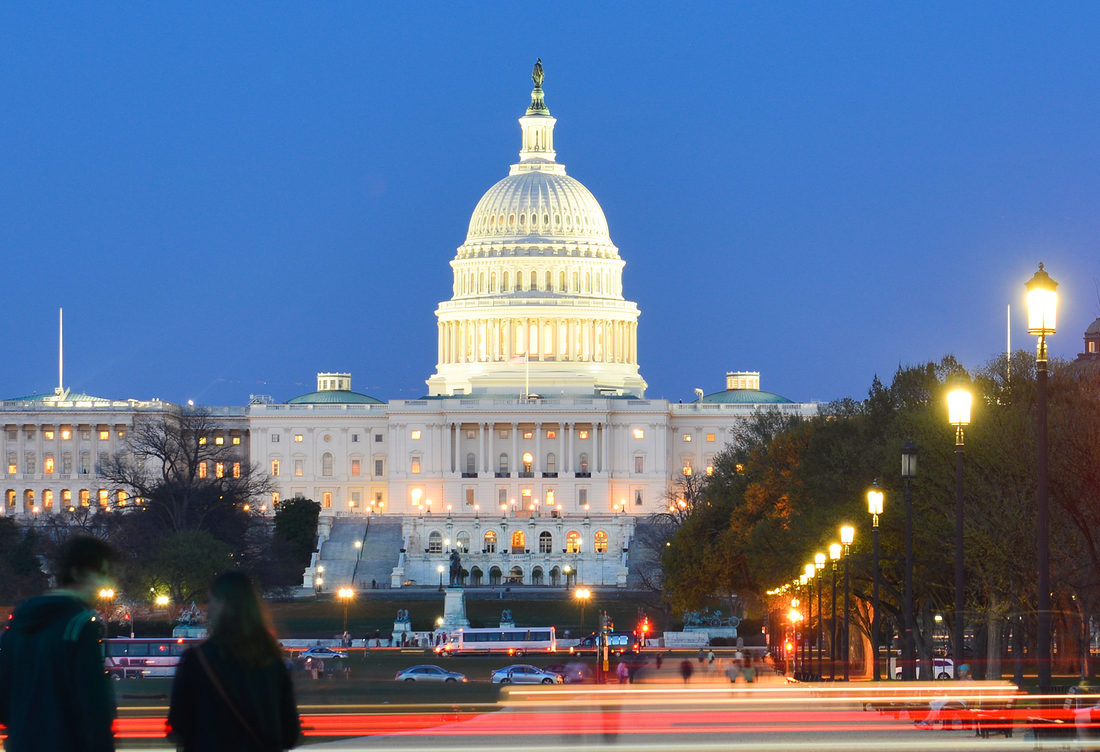Republicans Explore What Drives Economic Growth

House Republicans hosted a hearing Thursday to explore what policies lawmakers should be pursuing to encourage economic growth.
The economy has shown considerable improvement over the last year. It still faces lingering challenges from the last recession that could be hindering economic growth. The Economic Growth, Tax, and Capital Access Subcommittee hosted the hearing to examine what causes economic growth, and the limits that currently exist.
The recession was caused by the financial and subprime mortgage crisis of 2007. It was followed by an unusually prolonged economic recovery. Expert witnesses suggested a number of policy solutions that could help the economy finally see robust growth.
“Turning to present day trends, 2017 has seen a widespread but tempered increase in confidence among small business owners regarding the economy and overall trends in business investment,” testified Andrew Sherman, a partner at Seyfarth Shaw. “Business owner optimism has increased in part due to promises of tax reform, regulatory reform, and the strength of the capital markets.”
Sherman has written books and held lectures on entrepreneurship. He adds lawmakers should reduce regulatory requirements so banking institutions can more easily provide loans to small businesses. He also suggests reforms should reduce regulations and address problems with labor productivity.
Former President Barack Obama oversaw the recovery throughout his time in office. He was able to eventually see steady economic gains in his final years. President Donald Trump has focused his presidency thus far on resolving the economic issues still hindering the country.
“Over the last 8 years, economic growth has been stagnate,” Heritage Foundation distinguished fellow Stephen Moore testified. “Wages are, for the most part, flat, and many on the left believe our days of sustainable three percent growth are over.”
The Gross Domestic Product (GDP) is the primary indicator for measuring economic growth. The GDP tracks the total dollar value of all goods and services produced over a specific time period. It jumped last year to 3.5 percent after being stuck around one percent.
“I believe that the hope of human achievement and policies that allow for us to produce and grow, free of government intervention will break all expert predictions,” Moore said. “This is all possible if Congress enacts policies that reduce regulation, lower taxes, and empower small businesses.”
Not everyone is convinced slashing taxes and regulations is the right approach. Center on Budget and Policy Priorities economist Chad Stone urged a more deliberate approach since both can be beneficial. Safety regulations, for instance, may impose additional costs on businesses, but they also improve workplace conditions and safety.
“Health, safety, and environmental regulations can impose costs on businesses that may slow measured GDP growth,” Stone said. “But any such costs must be compared with the benefits of better health, safer workplaces, and a cleaner environment that may not be captured in GDP.”
Stone adds the positive impact of tax cuts is often exaggerated in relation to economic growth. Republican leadership has made tax reform a priority. Trump introduced a tax plan Wednesday that focused on lowering rates and simplifying the system.
The hearing also focused on how small businesses help further economic growth. Sherman notes that small businesses have been reporting a decline in economic uncertainty in recent months but that they still are having trouble accessing affordable financing.
“We are all aware that small and emerging businesses are the backbone of our country and a significant engine for the creation of new jobs,” Sherman said. “Many small businesses are forecasting significant increases in revenue for 2017 and 2018.”
Stone counters that small businesses might not be as critical as some believe. He argues that the age of a business is a much more significant factor. He adds that small businesses aren’t necessarily a critical driver of growth, but rather startups and new businesses are.
“Research over the last several years has modified the longstanding claim that small businesses are the engine of job growth,” Stone said. “This research shows that the age of a business matters more than its size as a contributor to job growth, although new companies are typically small to start with.”
Sherman also urged lawmakers to look more closely at technological changes facing the economy. Businesses have been steadily adopting technology that allows them to replace labor with machines. Automation is nothing new, but improved technology and increased labor costs have threatened to displace many more workers in the years ahead.
The Congressional Budget Office (CBO) found in a recent budget outlook report that workers face slow wage and labor market growth over the next couple of decades. More people are also expected to dropout of the workforce. The outlook is based on current laws and could change as lawmakers enact reforms.
The Bureau of Economic Analysis (BEA) is scheduled to release its advanced estimate for GDP this year on Friday. Estimates are calculated on a quarterly basis throughout the year. The report is expected to paint a good picture of how the economy is doing under the new administration.



